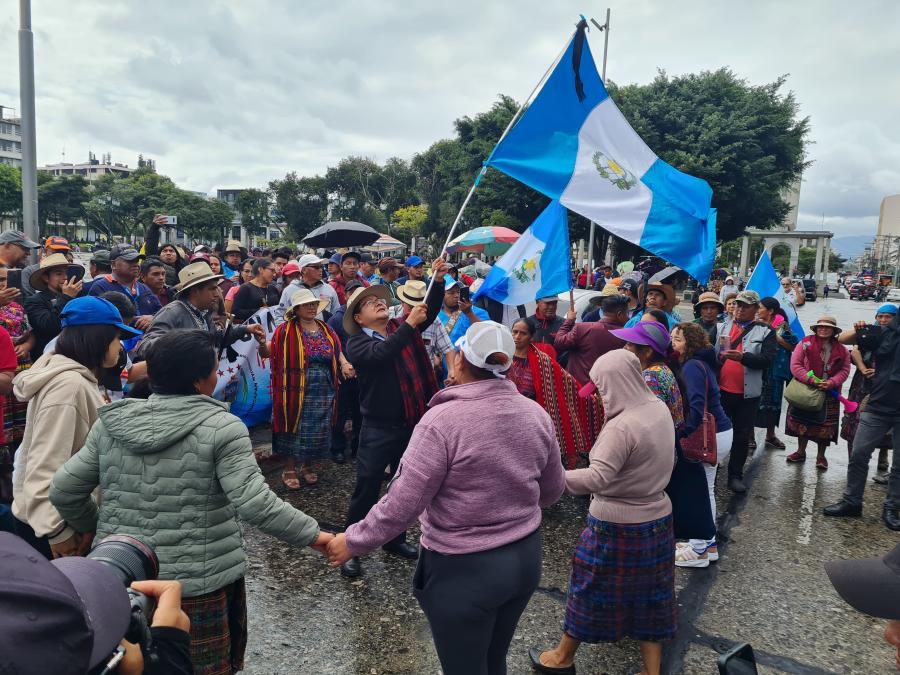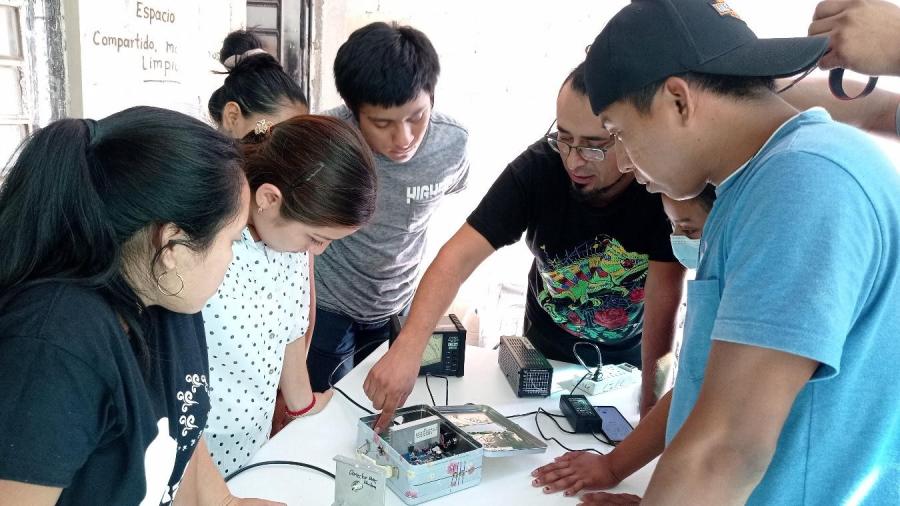
On Monday, May 20, 2013, Anselmo Xunic (Kaqchikel Maya), Guatemala Community Radio Program Manager for Cultural Survival and longtime Indigenous community radio activist, meet with James Anaya, the UN Special Rapporteur on the Rights of Indigenous Peoples during the 12th Session of the UN Permanent Forum on Indigenous Issues in New York. The meeting with Rapporteur Anaya was a long-awaited opportunity for Xunic and the community radio movement to put a face on their struggle at the international level.
The struggle, as Xunic presents it, is that Guatemalan telecommunications law implicitly prohibits Indigenous community radios’ existence. Despite the fact that the community radio movement and its allies, have presented to the Guatemalan Congress various bills that would permit community radios, the Congress has simply archived them and maintained its discriminatory law.
Xunic began his meeting with the Rapporteur by describing how the community radio movement in Guatemala has been under way for 15 years and yet there has not been a single moment in which the State has acknowledged the validity of the movement by creating a legal category for community radios. Rather, the Congress has passed a law extending the period of commercial radio stations’ access to frequencies, which by default extends the exclusion of community radios. Most recently, it has presented a bill that would criminalize community radio operators with 6-10 years in prison. The meeting with Rapporteur Anaya, which will be followed by meetings with other foreign and international officials, is essential in bringing the violation of Indigneous Peoples' freedom of expression to an international audience. After years of tireless efforts, little progress, and measureable setbacks, the community radio movement is hungry for officials with international sway to pressure Guatemala to change its exclusive law and allow for Indigenous freedom of speech.
By the end of the meeting, Rapporteur Anaya expressed his concern for and intent to look into the situation Xunic highlighted. He noted the “important role” that Indigenous radios play, especially in the context of the “very difficult history” of Indigenous Peoples in Guatemala. The tangible support of the Rapporteur would be an invaluable contribution to the efforts of the Guatemalan community radio movement, backed by Cultural Survival, to, as Xunic has described it, “democratize speech” for Guatemala’s Indigenous communities.


